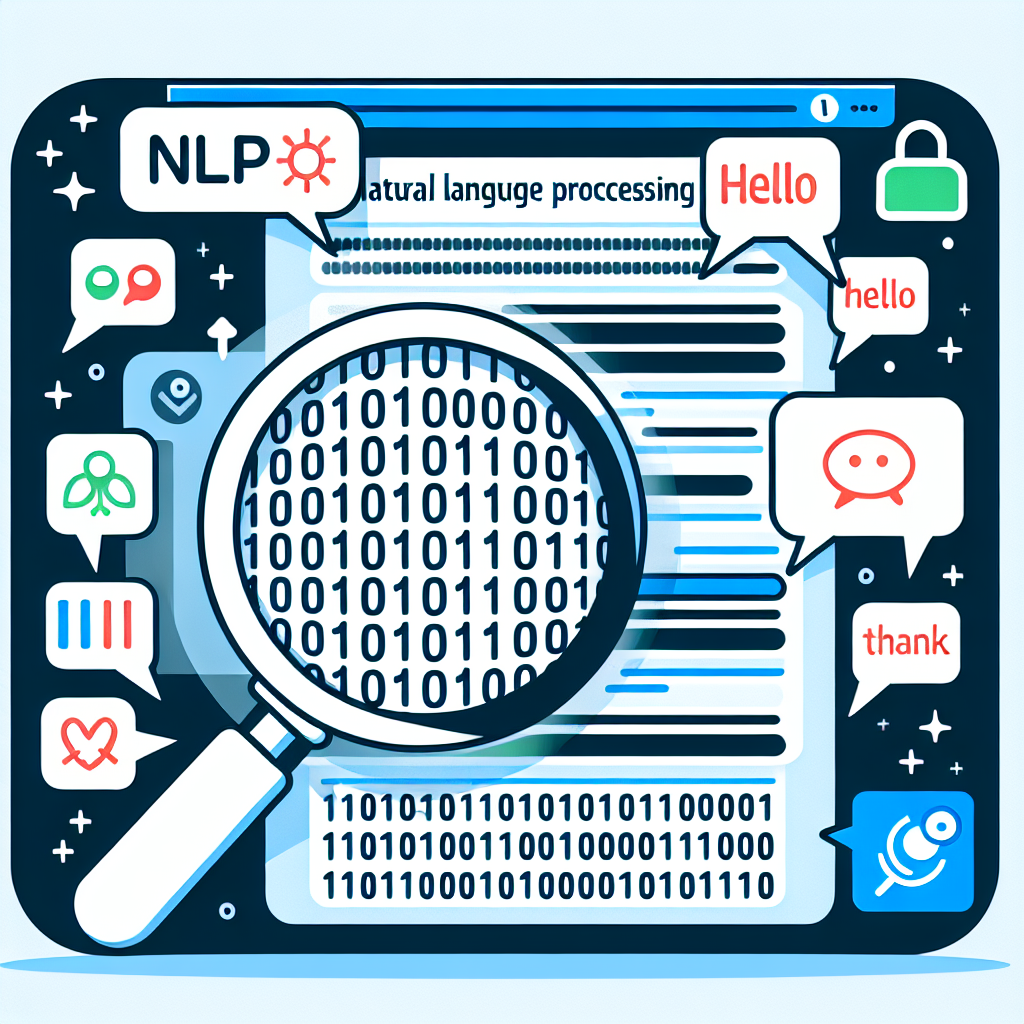Natural Language Processing (NLP) is a branch of artificial intelligence that focuses on the interaction between computers and humans using natural language. It has become increasingly popular in recent years as more and more businesses and organizations seek to improve the way they interact with their customers and users. One area where NLP is making a significant impact is in search engine optimization (SEO) and search engine results.
Search engines like Google, Bing, and Yahoo use complex algorithms to determine which websites to display in response to a user’s search query. These algorithms take into account a variety of factors, including keywords, backlinks, and user engagement metrics. However, traditional search algorithms often struggle to understand the nuances of human language, leading to less accurate search results.
NLP can help improve search engine results by enabling search engines to better understand and interpret the meaning of user queries. By analyzing the context, intent, and sentiment behind a user’s search query, NLP algorithms can deliver more relevant and accurate search results. This can lead to a better user experience and increased engagement with search engine results.
One way in which NLP can improve search engine results is through semantic search. Semantic search focuses on the meaning of words and phrases, rather than just matching keywords. By understanding the context and intent behind a user’s search query, search engines can deliver more accurate results that match the user’s needs and preferences.
Another way in which NLP can improve search engine results is through entity recognition. Entity recognition involves identifying and categorizing entities mentioned in a user’s search query, such as people, places, and organizations. By understanding the entities mentioned in a search query, search engines can deliver more relevant and personalized search results to users.
NLP can also improve search engine results by analyzing user intent. By understanding the intent behind a user’s search query, search engines can deliver results that are more tailored to the user’s needs. For example, if a user is searching for “best restaurants in New York City,” NLP algorithms can interpret the user’s intent and deliver a list of top-rated restaurants in New York City.
Overall, NLP can significantly improve search engine results by enabling search engines to better understand and interpret the meaning of user queries. This can lead to more relevant and accurate search results, a better user experience, and increased engagement with search engine results.
FAQs:
Q: How does NLP improve search engine results?
A: NLP improves search engine results by enabling search engines to better understand and interpret the meaning of user queries. By analyzing the context, intent, and sentiment behind a user’s search query, NLP algorithms can deliver more relevant and accurate search results.
Q: What are some specific ways in which NLP can improve search engine results?
A: Some specific ways in which NLP can improve search engine results include semantic search, entity recognition, and analyzing user intent. By focusing on the meaning of words and phrases, identifying entities mentioned in a search query, and understanding user intent, NLP algorithms can deliver more personalized and relevant search results.
Q: How can businesses benefit from using NLP to improve search engine results?
A: Businesses can benefit from using NLP to improve search engine results by increasing their visibility and relevance in search engine results. By delivering more accurate and personalized search results to users, businesses can attract more traffic to their websites, increase user engagement, and ultimately drive more conversions and sales.
Q: Are there any challenges or limitations to using NLP to improve search engine results?
A: While NLP can significantly improve search engine results, there are some challenges and limitations to consider. For example, NLP algorithms may struggle to accurately interpret highly complex or ambiguous search queries. Additionally, NLP requires a large amount of data and computational resources to train and deploy, which may be a barrier for some businesses.
Q: How can businesses get started with using NLP to improve search engine results?
A: Businesses can get started with using NLP to improve search engine results by working with experienced data scientists and AI experts who specialize in NLP. These experts can help businesses develop and deploy NLP algorithms that are tailored to their specific needs and goals. Additionally, businesses can explore using NLP tools and platforms that are designed to improve search engine results, such as Google’s Natural Language API or IBM Watson’s NLP services.
In conclusion, Natural Language Processing (NLP) is a powerful tool that can significantly improve search engine results by enabling search engines to better understand and interpret the meaning of user queries. By focusing on semantic search, entity recognition, and user intent, NLP algorithms can deliver more relevant and accurate search results, leading to a better user experience and increased engagement with search engine results. Businesses that leverage NLP to improve their search engine optimization efforts can increase their visibility, relevance, and ultimately drive more conversions and sales.

